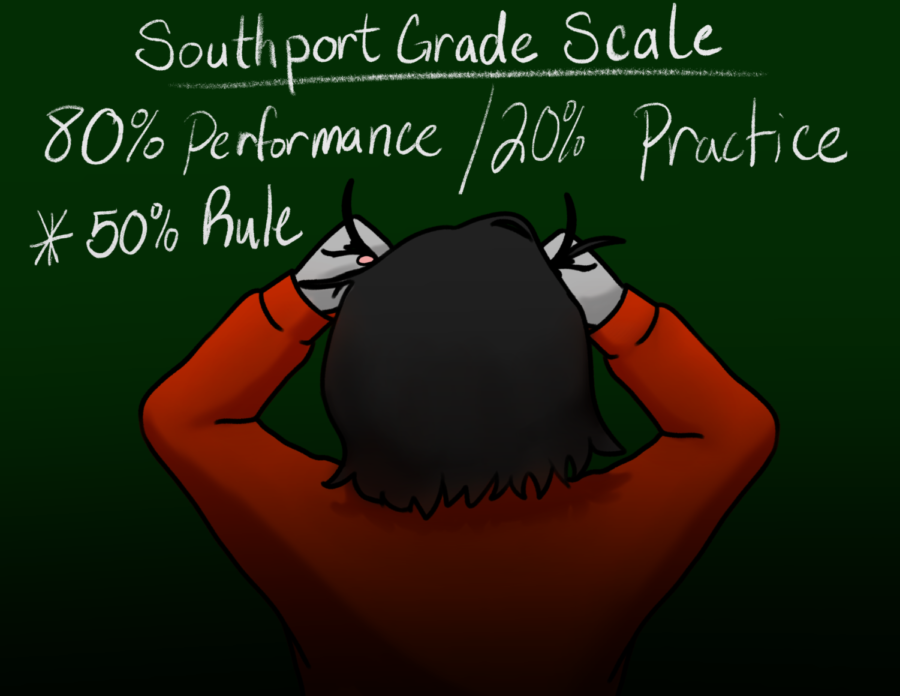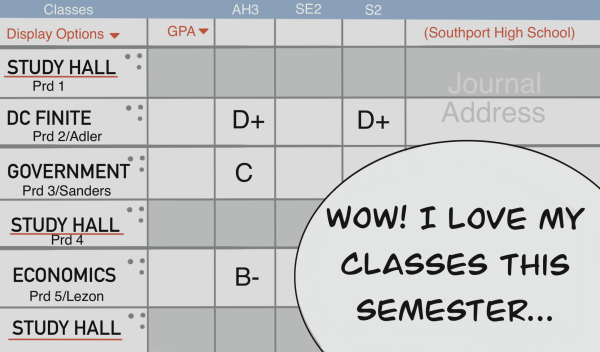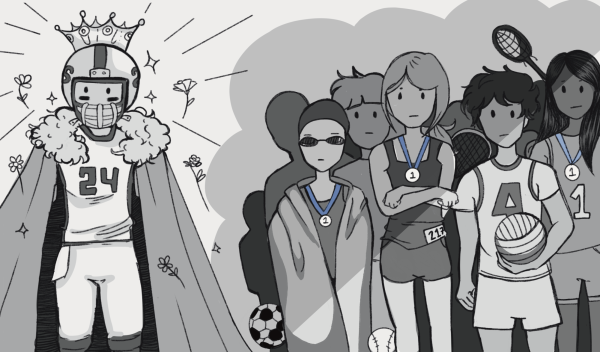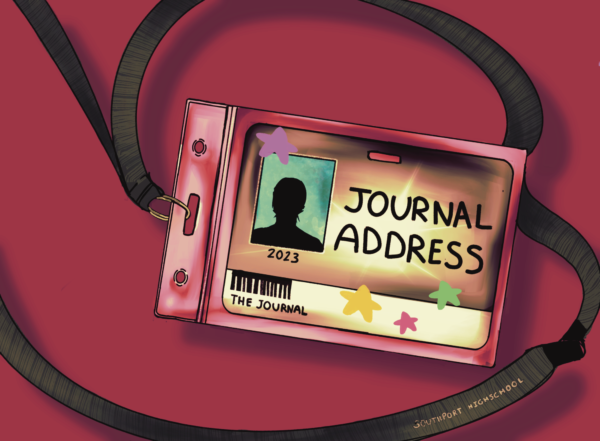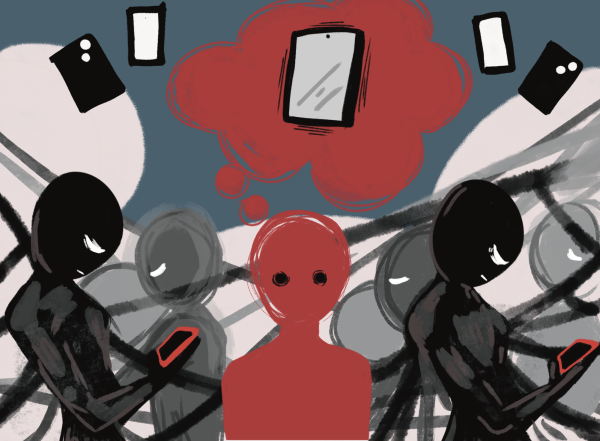Journal Address
The percent distribution of the SHS grading scale is unfair to students.
“Can you send me a picture of the homework?” is a phrase heard all throughout SHS, regardless of the subject or teacher. Students overtly ask for answers and rarely put in effort to mask their cheating.
Just as common as sharing answers are the complaints from teachers about the apathy for academic integrity. In English classes the complaints are about ChatGPT and in math classes it’s copying work. Teachers are fed up and their criticisms are completely rational.
This school year, 61 students at SHS have been disciplined for “academic dishonesty,” also known as plagiarism, in any capacity. And that number is only students who were penalized for cheating. Per school policy, each of these students have still received 50% of their credit for the plagiarized assignment.
On the other side of this issue, all students who turn in their assignments are still subject to the same policy. Even students who turn in nothing receive the same amount of credit, meaning that students who put in effort but don’t perform well, those who copy work and students who submit nothing are seen as the same in the gradebook.
Through all of these different types of effort and performance, teachers also have to deal with the unfairness of giving the same grades across the board.
But, the 50% rule isn’t the only issue with the grading scale. The stark weight on practice versus performance assignments is another factor inhibiting student performance.
A practice assignment is any task or piece of homework that is indented to help one learn the class content. Performance assignments gauge a student’s actual knowledge of a topic, such as a test or lab. In math classes, all practice assignments are worth 20% of the grade and performance are 80%. In the rest of the subjects, practice is weighted at 30% and performance at 70%.
While in theory this weight would motivate students to put in more effort to learning as their recall is more impactful, it has the opposite effect. Many students brush off practice assignments as less important because they don’t have as much of an impact on their grade. Consequently, the content of a test is crammed the night before or not even retained at all.
Motivation and the lack of proficiency are just parts of an even wider issue with the grading scale and what we are told about our education.
From preschool to graduate school, everyone is told some iteration of the mantra that one must fail in order to succeed. This sentiment is widely accepted as true. The way this is permeated in education is the reason the imbalance of weight on our grade scale is an issue.
This policy sends a hypocritical message to students. One can fail, but only when practicing, not when under pressure to perform, a set up that closely resembles standardized tests.
Until recently, standardized tests such as the SAT have been required for college applications. Starting in third grade, students have to take the ILEARN test. From elementary on, students are subject to the stress of unchangeable outcomes from influential tests. Adding this dreaded aspect to all of school is stressful and shows that the school feels our education is about numbers, not learning.
Yet another issue with the weighted scale is that one bad day can affect your entire semester grade for a class.
According to the Indiana Department of Education, 71% of students in Perry Township are economically disadvantaged. With so many students facing hardships, sometimes survival takes precedence over education. Students may have to work after school, help take care of their siblings or deal with a myriad of other variables.
Putting so much weight on one part of a grade can negatively impact a student’s present because of homelife issues and their future because of the long-term impact grades can have.
So as Perry Township debates changes to the grading scale, we hope they’ll take our words into account. Making assignments a similar weight, such as 40% for practice and 60% for performance, would value effort and problem solving over memorization.


